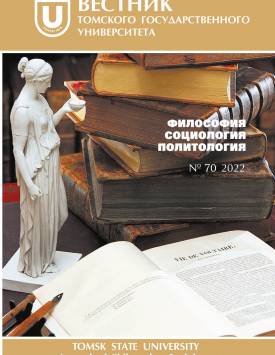The concept of world wars: challenges, substitutes, formal and real criteria, or How is a world war possible in the 21st century?
The First and the Second World Wars are among the most important events in the world history of the XX century. They have largely influenced the development of mankind, and modern society is largely formed under their powerful impact. At the same time, the concept of world wars is still insufficiently developed in the social sciences. This has led to a number of challenges to this concept, which propose to expand the scope of the notion of “world war”, including, in particular, the major wars of the New Age and the Cold War. In addition, the view that the totality of the wars of the late 20th and early 21st centuries constitutes the Third World War has become widespread these days. Furthermore, in the social sciences, substitutes for the concept of “world war” are used more and more frequently. These are notions that replace the idea of world wars, partly coinciding with it in scope (“general war” by A. Toynbee, “global war” by G. Modelski, etc.). In order to identify the specifics of world wars, distinguishing them from other major wars, the author proposes to single out their formal and real criteria. As formal criteria for world wars, the author considers the following factors: 1) the direct participation of the armed forces of most of the leading states of the world, 2) the participation of blocs of states on both sides, 3) the deployment of military operations on the territory of at least two continents and in the World Ocean connecting them, and finally 4) simultaneity of clashes in the main centers of war. Establishing real criteria involves identifying the causes of world wars. The author connects the world wars with monopoly capitalism, which arose at the turn of the 19th and 20th centuries. Monopoly capitalism is moving from a transnational to a global phase, which leads to the transformation of the causes of world wars. From the point of view of the unity of formal and real criteria, we can confidently assert that only the war of 1914-1918 and the war of 1939-1945 really were the world wars. Identification of the evolution of the causes of world wars allows us to discuss the possibility of the Third World War in the 21st century. The author declares no conflicts of interests.
Keywords
war studies, world war, transnational capitalism, global capitalism, I. Wallerstein, A. Toynbee, G. ModelskiAuthors
| Name | Organization | |
| Rakhmanov Azat B. | Lomonosov Moscow State University | azrakhmanov@mail.ru |
References

The concept of world wars: challenges, substitutes, formal and real criteria, or How is a world war possible in the 21st century? | Tomsk State University Journal of Philosophy, Sociology and Political Science. 2022. № 70. DOI: 10.17223/1998863X/70/23
